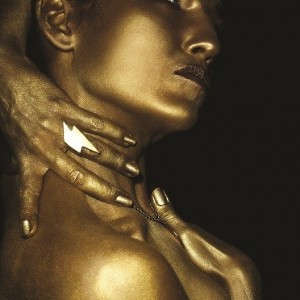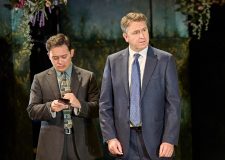Joan As Policewoman – The Classic

When she first started out as solo artist, Joan Wasser found it a little difficult to gain traction despite her pedigree as an in-demand violinist, singer and stage performer with the likes of Nick Cave, Antony Hegarty, Lou Reed and Rufus Wainwright. Released on the nascent Reveal Records label in 2006, her debut album as Joan As Policewoman, unveiled a startlingly good songwriter and all-round musician, who could play guitar, piano, and sing as well as play the violin. it is a minor classic, an album forged through tragedy (Jeff Buckley was her boyfriend at the time of his death, and Wasser herself was an adopted child at birth) and plenty of life experience.
Fast forward to 2014, and through sheer determination, a big personality, talent and a lot of hard graft, Wasser has just released her fourth studio album, The Classic, which shows off her life long love affair with soul music, and is a more upbeat affair than her previous albums, perhaps inspired by the better place, mentally and spiritually, that she proclaims to be in…
At the heart of Wasser is an artist always willing to extend the boundaries of the perceived wisdoms of both form and substance, and to experiment. On the first two songs, both heavily Motown and soul inspired – Witness and Holy City – the songs are extended, without finding that normal sort of closure you would expect. To some this is bad, but to this reviewer, and because the base and structure of the songs are sound in the first place, it makes for something entirely more interesting and vibrant. One of the best tracks on this eclectic album, Holy City, is a carefully crafted soul stormer that sees Wasser’s vocal zig-zagging around the infectious melody before giving over the last third of the song to scat-style vocals courtesy of Reggie Watts, eventually the song reclining effortlessly to an unexpected close. It’s a neat touch, and there are other examples of this method throughout The Classic.
The title track itself – apparently inspired by a visit to Jerusalem’s Wailing Wall – is a take on classic doo-wop, with voices also mimicking bass and drums. Once again, it’s a great tune, about freedom of expression, and sung with gusto by Wasser and friends. Here she has found ‘the one’ and is emblematic of her new found spirit. It’s also the shortest track, clocking in at just under three and a half minutes…
Next track, Good Together, is twice as long; but again, is a masterclass in songwriting, influenced by the soul of yesteryear, and helped along by some juiced organ playing, a feature throughout the album. Yes, like many of her songs, it could have been trimmed substantially, and turned into a ‘regular’ song, but Wasser’s pieces can often be made up of two or three ‘movements’, classic pop structures rubbing shoulders with changes in texture, mood, rhythm and melody even, but held together both lyrically and through its sentiments. Good Together ends up folding in upon itself, The Beatles Day In The Life springing to mind, as the cacophonous orchestral swells close the song. Later track What Would You Do is also in effect two entirely different songs, stitched together as one. Again, The Beatles come to mind, a band who were highly skilled (and eager) in sometimes stitching disparate elements together in creating whole pieces; witness McCartney’s You Never Give Me Your Money, Lennon’s Happiness Is A Warm Gun, and of course the aforementioned Day In The Life.
With Get Direct, Wasser finally takes the foot of the pedal, letting a little breath out as she gathers herself again. It’s another in a series of drawn out songs, this time a woozy, dreamy, and yearning number that speaks of relationships and the art of connecting, topics that Wasser consistently returns to. Again, the experimental nature of the song is brought home with the final third given over to slowed down, tribalesque percussion and dampened electronics.
The excellent New Year’s Day sounds like a horrific comedown, crashing drums and heavily reverbed guitar are all there is to begin with (in backing Wasser’s voice), but once again a meaningful tune is to be found and Joan’s drummer, the excellent Parker Kindred is given plenty of free rein to just play. Unorthodox it may be, but it’s arresting, and ultimately quite inspired; the song slowly melds into a simply gorgeous, synth and strings swell, while the cymbals crash and burn…
The Classic dives somewhat from here, with the sudden re-appearance of the retro soul stylings on the poorest track on the album, Shame, while Stay is bereft of much of a melody or direction. Which leaves the final track, the reflective and twinkly reggae (and even Radiohead – think Easy Star All-Stars dub version of OK Computer) inspired Ask Me, a gentle closer.
Ultimately, The Classic is a mixed bag, in both form and quality – the retro-soul moments sometimes at odds with the more downbeat hues. But for the most part the songs are excellent, once again revealing Wasser to be a songwriter of skill, and the production and playing both exemplary (mention just go to Joan’s co-producer and multi-instrumentalist Tyler Wood. But most of all the experimentation throughout The Classic is largely inspiring and inventive, turning what could have been a decent collection of pop songs into something more dramatic, interesting and engaging.
Joan as Policewoman are on tour of the UK, including Komedia, Brighton, 17 April
Rating:
Jeff Hemmings





















